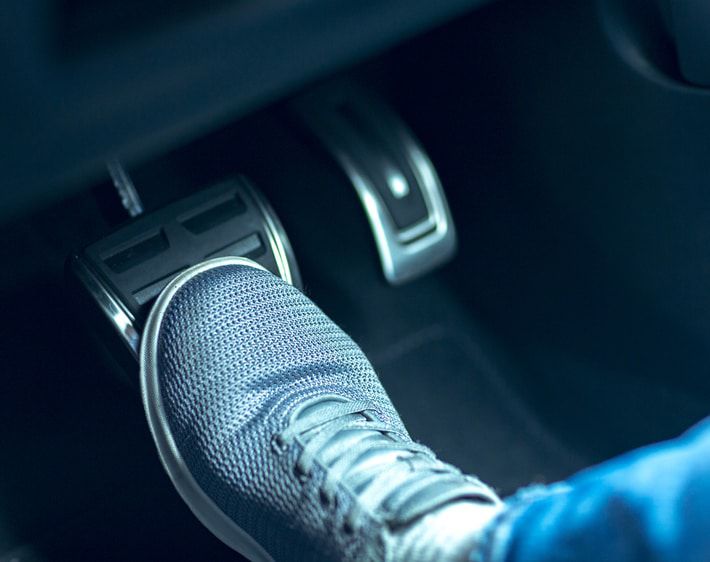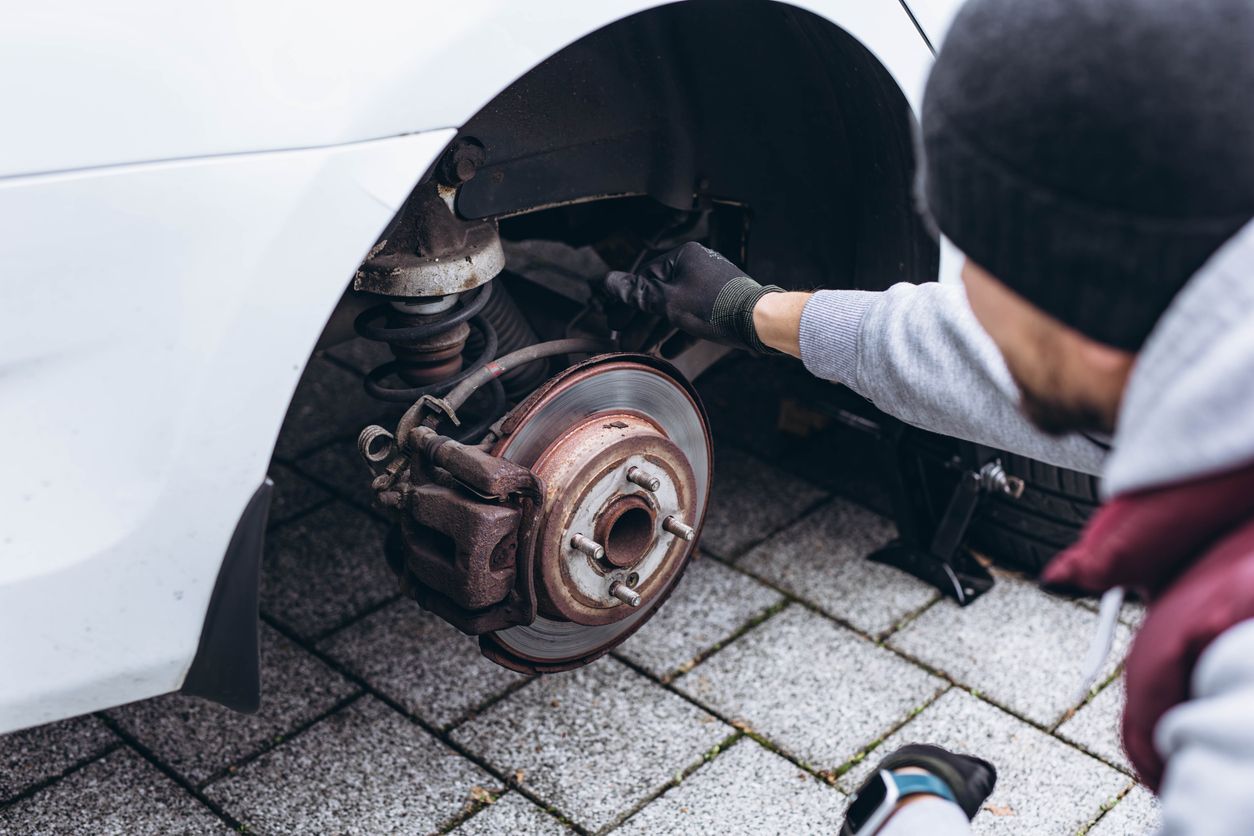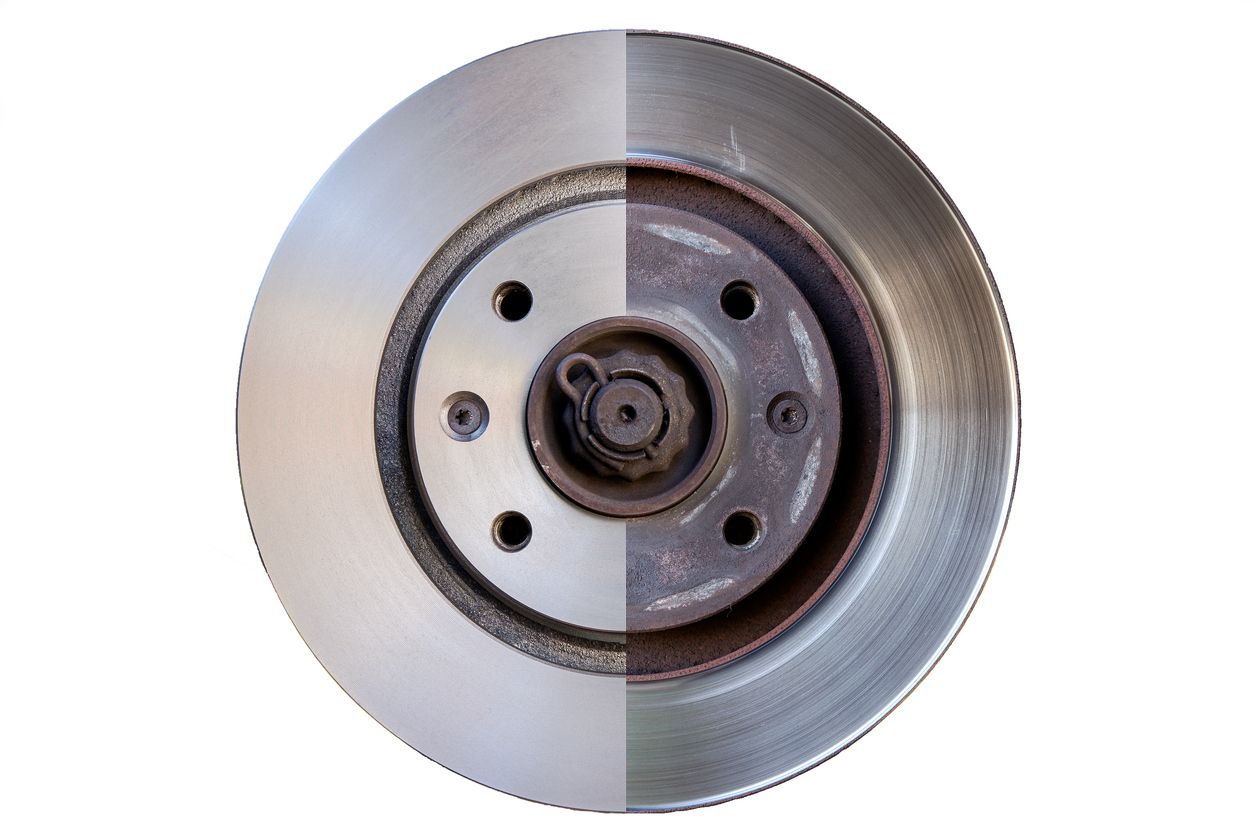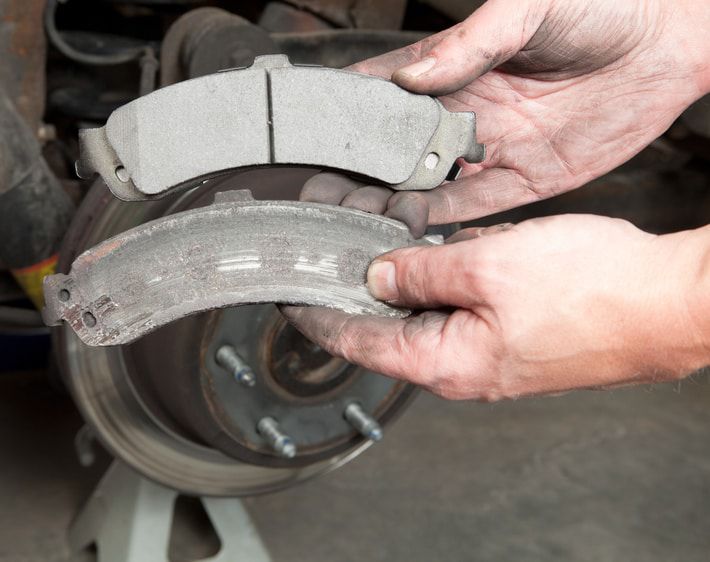You just had a brake pad replacement. Your brakes feel more responsive—and then: squeeeeak.
If you're wondering, “Should new brakes squeal?” — the answer is sometimes. It’s actually pretty common for new brake pads to squeal or squeak right after installation. But how do you know when it’s part of the break-in process and when it’s a sign that something’s not quite right?
Here’s what causes new brakes squeaking, what’s normal, and how to stop brake squeal before it becomes a bigger issue.
Why Do New Brakes Squeak? (And When It’s Normal)
If your new brakes are squealing, don't panic. In many cases, it's a temporary part of the break-in process. Let’s look at the most common, potentially less-serious causes of brake noise after replacement:
1. Pad and Rotor Break-In
It’s normal to hear some noise shortly after a brake pad replacement, even if everything was done correctly. That’s because new brake pad squealing sounds during the initial "break-in" period—or bedding-in—is common as the pads and rotors begin to work together.
A quality brake job usually includes a basic break-in process to help the new pads seat properly against the rotors. Even so, it may take several miles of real-world driving before the squeaking goes away entirely, especially if you've gotten all new rotors. You might notice some temporary brake noise during this time, especially when stopping at low speeds.
Here’s how to stop new brakes from squeaking during this break-in phase (or at least help alleviate the squeaking):
- Avoid slamming on the brakes unless necessary.
- Practice gradual, controlled stops.
- Give your brakes time to adjust—noise should decrease as the surfaces wear in.
If the squeaking doesn’t fade after a few days or worsens, it’s worth getting things checked out.
2. Moisture or Surface Rust
Moisture from rain, humidity, or even morning dew can cause light surface rust to form on the rotors overnight. When you brake, this rust gets scraped away—often creating a brief squeaking sound.
This is normal and should subside as you drive.
3. Brake Overheating
If you’ve been riding the brakes on a downhill drive or in traffic, aggressive stopping or constant pressure on the brake pedal can cause your brakes to get hot and emit an audible squeak or chatter. When brakes overheat, they may emit audible noises until they cool off.
Try pulling over to a safe place, turn off your car, and give your brakes a break. If squealing continues on normal drives, it might be time for a closer look.
When New Brake Squeal Isn't Normal
Sometimes, new brake squealing doesn’t go away, and that’s when it’s time to get your vehicle inspected. Here are a few common issues that can cause persistent squeaking:
1. Improper Installation
If brake components weren’t installed or aligned properly, they might not make even contact with the rotors—causing consistent noise or vibrations. A professional can inspect and determine the proper repairs.
2. No Lubrication on Brake Hardware
Brake pads need lubrication on contact points (like caliper pins and backing plates) to prevent vibration and noise. Lack of lubrication is a frequent culprit behind new brakes squealing right after installation.
3. Glazed Brake Pads or Rotors
If you brake aggressively before your new pads are properly broken in, it can lead to glazing—a smooth, hardened finish that reduces friction and causes noise. Glazing often leads to persistent squealing and reduced performance. If your brakes feel less responsive and are noisy, glazing could be the culprit.
4. Grinding, Not Squeaking
Hearing a grinding noise instead of a squeak? That’s a different issue, and it usually signals a more serious brake problem.
In most cases, grinding means the brake pads are worn down completely, and the metal backing plates are making direct contact with the rotors. But if you just had a brake pad replacement, this type of noise shouldn’t happen—unless something was installed incorrectly or another component (like the calipers or rotors) is damaged or misaligned.
It’s also worth noting that some performance-oriented brake systems or metallic brake pads may naturally produce more sound, including light grinding or growling during aggressive stops. Even so, if you're unsure what's normal for your vehicle, don’t guess; have it checked.
Grinding brakes are always a reason to schedule a brake inspection right away. Ignoring them can quickly turn a routine service into a costly repair.
Other Factors That Might Contribute to Brake Squeal
Even perfectly installed, high-quality brakes can squeak under the right conditions. Other common causes include:
- Dust and debris stuck between the pad and rotor
- Cold weather, which can stiffen braking materials
- Aggressive braking habits or frequent “tapping” of the brake pedal
- Extra weight in your vehicle causing added strain on the braking system
Taking Care of New Brake Pads
Caring for your new brake pads from the get-go can help them last longer and perform better.
- Slow down and keep your eyes on the road. This can help you avoid slamming on the brakes and creating more friction (heat) than necessary in your brake system.
- Don't "two-foot" your pedals. If you keep one foot on the gas pedal and one foot on the brake pedal at all times, you may accidentally " tap" your brakes pretty often. Brake "taps" do little to slow down your car, but it does contribute to wearing out your brake pads. (Plus, "two-footing" is a big Driver's Ed no-no!)
- Coast instead of brake. When possible, let your car coast to help it slow down and stop instead of braking.
- Only haul what you need. Still carting around bags full of old clothes to donate? How about boxes of tools or last season's ski gear? (No judgment, here!) It's time to lighten your load a bit! All that extra weight in your car can add up, putting a larger burden on your brake pads when stopping, which can lead to premature brake pad wear.
- Keep it clean: Routine brake checks help catch wear, debris, or buildup before it causes problems.
When to Get a Brake Inspection
If your new brake pads have been squealing for more than a few days, or if you hear grinding, feel vibrations, or notice a burning smell, it’s time to get them checked out.
Other red flags include:
- A brake warning light on your dashboard
- Pulsing in your brake pedal or steering wheel
- A burning smell near your tires
- Squealing that gets worse over time, not better
- Pulling to one side when braking
- Unusually soft or hard brake pedal
Don’t Ignore Brake Noise. Get Professional Help from Firestone Complete Auto Care
Your brakes are one of the most important safety features on your vehicle. If something doesn’t sound or feel right, don’t wait.
Visit your nearest Firestone Complete Auto Care for a brake inspection. Our technicians can diagnose the issue and recommend the right solution—whether that’s a simple adjustment, hardware lubrication, or a new set of pads. We’ll help get you back on the road.



